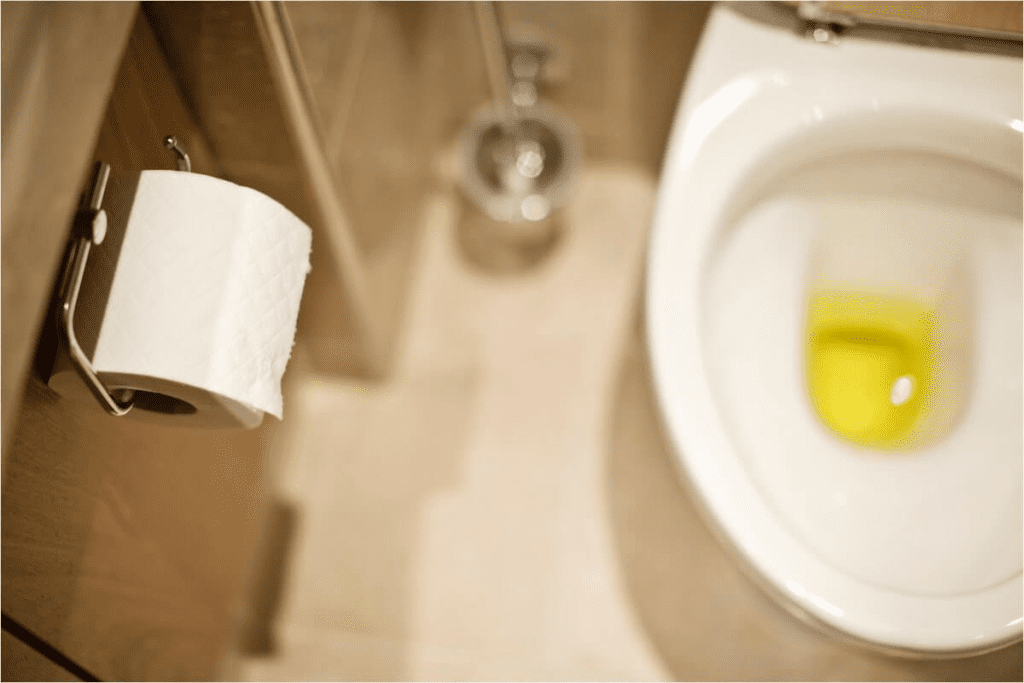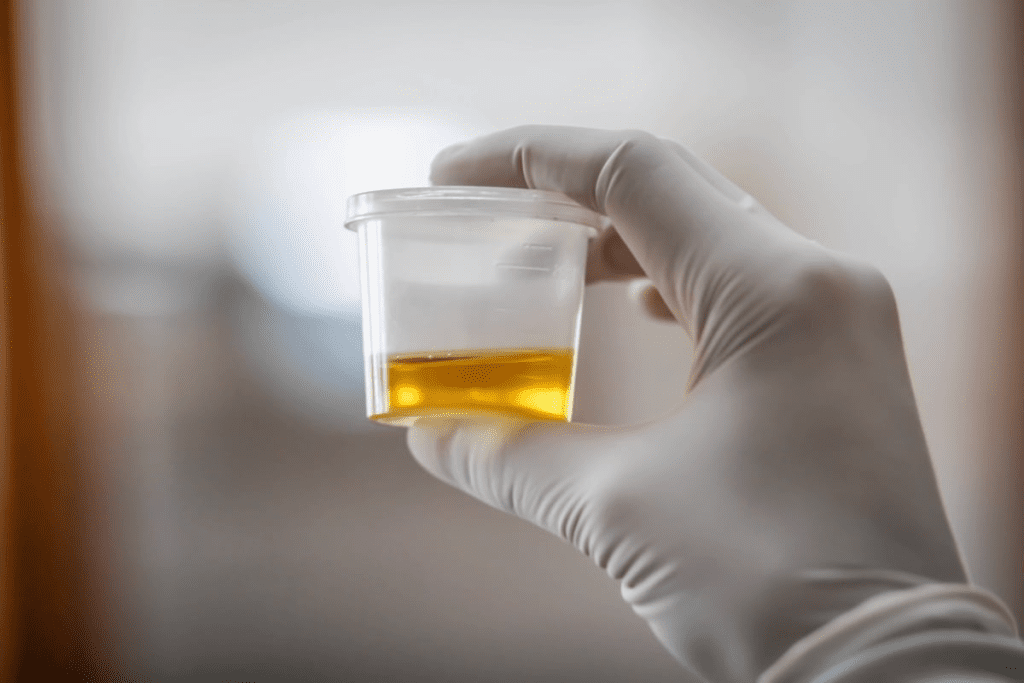Last Updated on October 31, 2025 by

Ever wondered why does my pee smell stronger or more unpleasant at times? Urine odor can actually tell a lot about your body’s health. It’s often linked to hydration, diet, or medical conditions.
Urine is mostly water, but it also contains waste filtered by the kidneys. The balance between water and waste affects how urine smells. According to medical experts, this mix plays a big role in determining urine’s scent.
Not drinking enough water is one of the main reasons why your pee might smell bad ” it makes the waste more concentrated. Certain foods like asparagus, coffee, or garlic, as well as health issues like infections or diabetes, can also make urine odor stronger.
Staying hydrated and keeping track of any sudden changes in smell can help you understand your body better and know when to see a doctor.
The smell of urine is more than just a bodily function; it’s a complex process involving various compounds. Urine’s distinct smell comes from its chemical makeup. This can change based on how much you drink and what you eat.
Normal urine is pale yellow and smells slightly sweet or neutral. It’s mostly water with waste products like urea making up a smaller part. When urine has more water and less waste, it usually doesn’t smell much.

Ammonia is key to urine smell. When urine is more concentrated, it smells like ammonia. This happens because urea breaks down into ammonia by bacteria. Dehydration can make urine more concentrated, making it smell stronger because of more ammonia.
Some things that can change urine smell include:
Knowing these factors can help manage and prevent strong urine odors. Drinking enough water and watching what you eat can help control urine smell.
If you’re wondering why your pee stinks, you’re not alone. Several common factors can make your urine smell strong. We’ll look at these factors to help you understand why your urine smells.
Dehydration is a big reason for smelly urine. Not drinking enough water makes your urine more concentrated. This can make it smell worse. Drinking plenty of water helps dilute your urine and lessen its smell.
Certain foods and drinks can make your urine smell worse. For example, asparagus is known for making urine smell bad. Coffee and other caffeinated drinks can also make urine smell stronger. Foods like asparagus or certain vitamins can cause urine odor.

Some medications and supplements can change the smell of your urine. For instance, certain B vitamins and antibiotics can do this. Knowing these side effects is important. If you’re worried about your urine smell, talk to your doctor to check for any health issues.
Knowing why your urine smells can help you manage it. Stay hydrated, watch what you eat, and know about your medications. This can help prevent foul-smelling urine.
Changes in urine smell can signal health issues. These can range from infections to metabolic disorders. It’s important to look into the possible causes when we notice these changes.
Urinary tract infections (UTIs) often cause foul-smelling urine. Bacteria like E. coli can infect the urinary tract. This leads to symptoms like strong-smelling urine and burning during urination.
Ignoring UTIs can lead to serious problems. So, getting medical help quickly is key.
Diabetes can also change urine smell. High blood sugar levels make the body produce more urine. This urine can smell sweet or fruity because of ketones.
Other metabolic disorders can also impact urine smell. It’s vital to watch for any changes and talk to a doctor.
Trimethylaminuria is a rare genetic disorder. It makes the body unable to break down certain compounds. This leads to urine smelling like fish due to trimethylamine buildup.
In conclusion, many medical conditions can cause foul-smelling urine. Knowing about these conditions and their symptoms is key to getting the right medical care. If you notice persistent or severe changes in urine smell, see a healthcare professional for a proper diagnosis and treatment.
It’s important to know when smelly urine is a sign of a bigger problem. While urine smell can change due to what you eat or not drinking enough water, some smells can mean you have a health issue.
If you have smelly urine and any of these symptoms, see a doctor. These signs include:
Medical News Today says if dehydration doesn’t get better with water, or if you have pain or burning, see a doctor. These could be signs of a urinary tract infection or another serious issue.
When you see a doctor for smelly urine, they will first ask about your health and do a physical check. They might do tests like:
Understanding why your urine smells can help your doctor find the right treatment. This could be antibiotics for an infection or managing a condition like diabetes.
Don’t ignore persistent or severe symptoms. Catching and treating problems early can make a big difference. If you’re worried about your urine smell, get medical advice to check for any health issues.
Understanding why urine smells is key to fixing the problem. We’ve looked at many reasons, like not drinking enough water, what we eat, medicines, and health issues.
To cut down on smelly urine, drink lots of water. Also, skip foods like asparagus that make urine smell. Taking care of health problems, like diabetes, is also important.
By paying attention to these points and acting early, we can reduce smelly urine. If urine smell worries you, talk to a doctor for help.
If your urine smells like ammonia, it might mean you’re dehydrated. This is because concentrated urine smells stronger. It could also hint at a urinary tract infection or another health issue.
Sweet urine can signal diabetes. High blood sugar levels lead to glucose in your urine. If you notice this smell often, see a doctor.
Yes, foods like asparagus, garlic, and fish can make urine smell worse. Eating a lot of sulfur-rich foods also does the trick.
To avoid smelly urine, drink lots of water and eat well. Keeping clean also helps.
Foul urine smell can mean many things, but not always cancer. But, if symptoms last or get worse, see a doctor.
Yes, some meds like antibiotics and vitamins can change urine smell. Talk to your doctor if you’re worried.
If your urine smells bad and you feel pain, burning, or can’t pee, see a doctor. It could be a sign of something serious.
Subscribe to our e-newsletter to stay informed about the latest innovations in the world of health and exclusive offers!